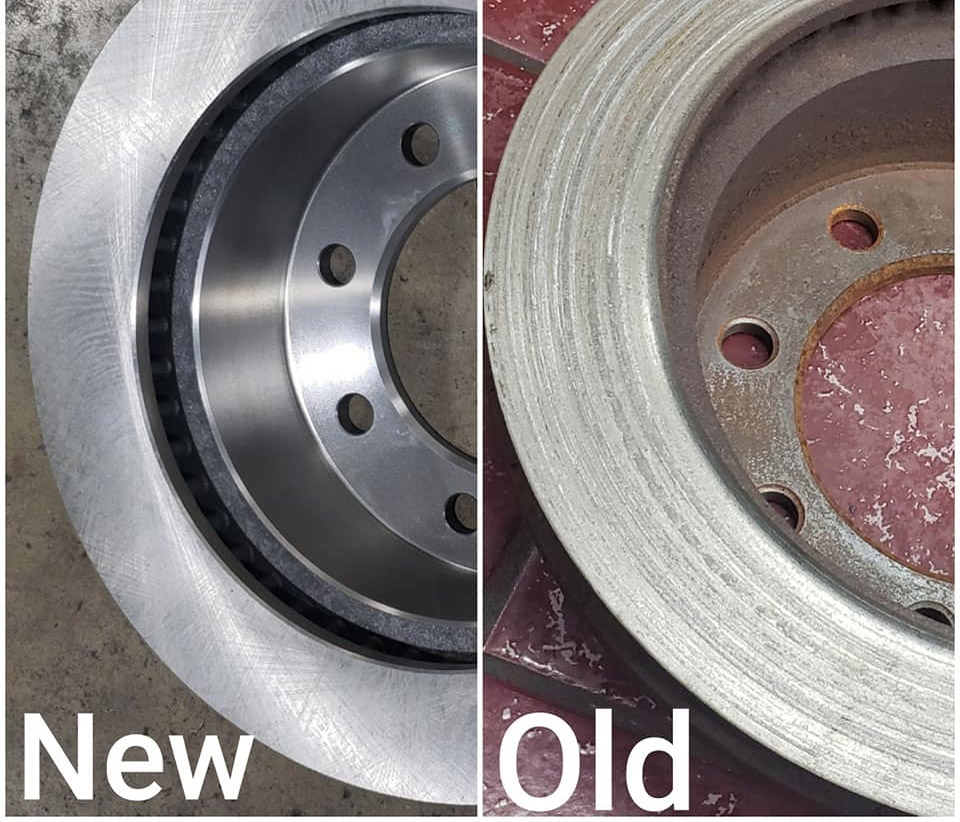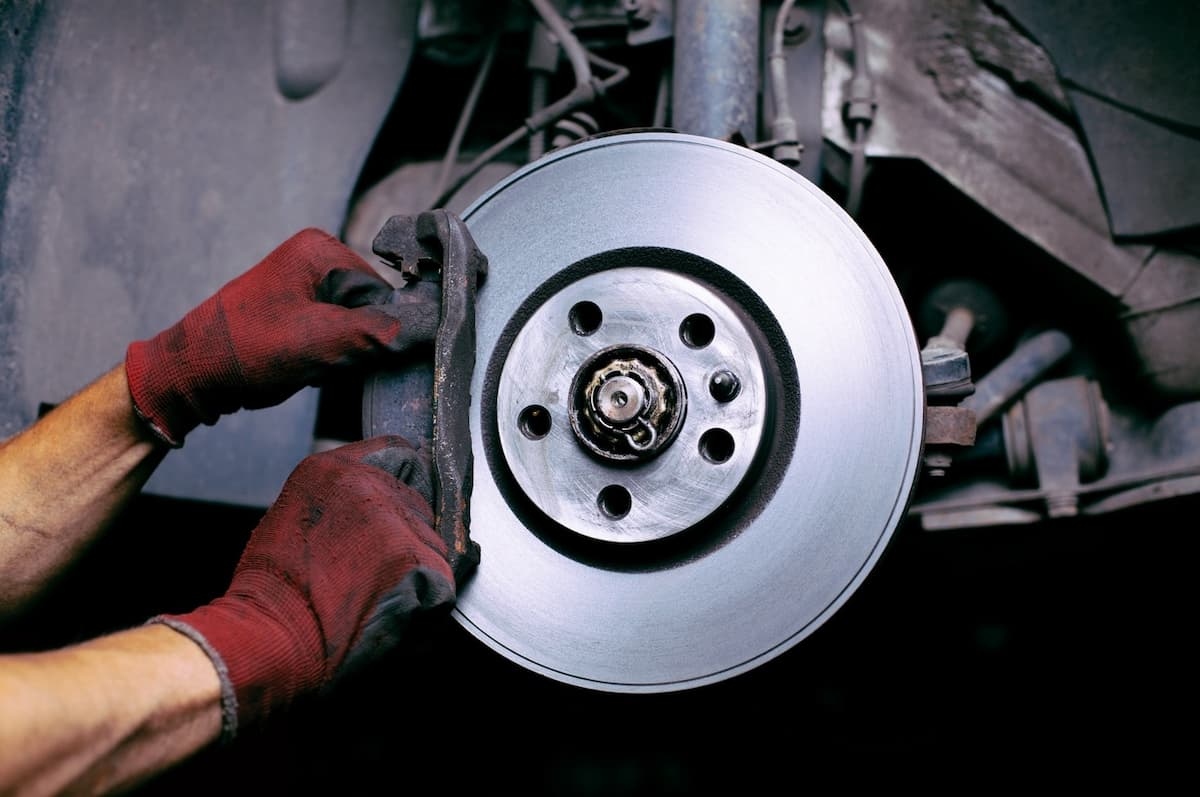Your vehicle’s braking system is not only critical for your safety but also for the safety of those sharing the road with you.

Invisible Danger: Regular brake checks are essential for road safety. Faulty brakes increase the risk of accidents, impairing your ability to stop or slow down. In emergencies, bad brakes may fail, leading to loss of control and collisions. Neglecting brake maintenance jeopardizes the safety of all road users.
Every time you press the brake pedal, you rely on a complex system designed to swiftly and safely bring your vehicle to a stop.
Yet, in the hustle and bustle of daily life, the health of this crucial component often takes a back seat in our list of automotive concerns.
The dangers of driving with compromised brakes are not merely an inconvenience—they pose a serious threat to your safety and the well-being of those sharing the road with you.
Neglecting the maintenance of your brakes can have severe consequences, ranging from accidents to fatal outcomes.
The Dangers of Driving with Bad Brakes
Driving with bad brakes isn’t just an inconvenience; it’s a serious hazard that could easily turn your day from routine to disastrous. Think about it: worn-out brake pads or faulty components can make your car take way longer to stop. That means when you need to slam on the brakes—like when a car in front of you stops suddenly—you might not be able to stop in time, risking a collision. And that’s just the start.
When your brakes aren’t working properly you can’t control the car as well, especially in emergency situations. Imagine trying to make a quick stop but your brakes don’t respond fast enough—that loss of control could lead to an accident you didn’t see coming.
Worse yet, ignoring brake maintenance long enough could lead to total brake failure, which is as terrifying as it sounds. If your brakes give out completely, stopping the car becomes nearly impossible, and that can result in a major accident, serious injuries, or even worse.
It’s one of those things we don’t think about until something goes wrong, but keeping your brakes in check can save you and others on the road from a potential catastrophe.
Maintaining Your Brakes
Maintaining your brakes is important to keep you safe on the road, helps you stop quickly in emergencies, prevent accidents, and avoid catastrophic brake failures that could cause serious injuries or fatalities.
Here are a few things you can do to maintain your breaks:
- Regular Inspections: Schedule regular brake inspections with a qualified mechanic. They can assess the condition of your brake pads, rotors, and other components to ensure they are functioning properly.
- Brake Fluid Checks: Brake fluid plays a crucial role in the braking system. Regularly check the brake fluid level and quality, and replace it as recommended in your vehicle’s maintenance schedule.
- Listen for Warning Signs: Unusual sounds, such as squeaking or grinding, can indicate worn brake pads. Addressing these issues promptly can prevent further damage to the braking system.
- Monitor Brake Performance: Pay attention to any changes in your vehicle’s braking performance, such as a soft brake pedal, vibrations, or pulling to one side, as these can be signs of brake issues.
It’s important to schedule brake inspections at least once a year, or more frequently if you notice any warning signs, as regular check-ups can catch potential problems before they become serious.
Following your vehicle manufacturer’s recommended maintenance schedule, which usually includes brake system checks at specific mileage intervals, ensures your brakes are functioning properly and safely.
How to Tell If You Need Brake Service
- Squeaking or Grinding Noises: These sounds often indicate worn brake pads, and addressing the issue promptly can prevent damage to other components.
- Soft Brake Pedal: If your brake pedal feels soft or spongy, it could be a sign of air or moisture in the brake system, requiring immediate attention.
- Vibrations or Pulling: If your vehicle vibrates during braking or pulls to one side, it may indicate uneven brake wear or issues with the brake calipers.
Getting Your Brakes Changed
- Professional Inspection: Consult a qualified mechanic to assess the condition of your brakes. They will provide recommendations based on the wear and tear of your braking system.
- Timely Replacement: Follow the manufacturer’s guidelines for replacing brake pads, typically every 25,000 to 70,000 miles, depending on driving conditions and usage.
Statistics on Accidents and Fatalities
According to the National Highway Traffic Safety Administration (NHTSA), brake-related issues were responsible for 22% of crashes caused by vehicle-related factors, underscoring the serious risks associated with neglecting brake maintenance.
Recently, NHTSA also reported that nearly 22% of crashes were directly linked to brake problems, further emphasizing how critical it is to keep brakes in good condition to prevent accidents and save lives.
Regular maintenance and timely inspections are vital to ensuring that your brakes function properly and reduce the chances of becoming a part of these alarming statistics.
Driving with bad brakes is a risk no one should take. Regular maintenance, timely inspections, and swift action in response to warning signs are crucial in ensuring the reliability of your vehicle’s braking system.
Don’t compromise on safety—make brake maintenance a top priority for a secure and enjoyable driving experience.


